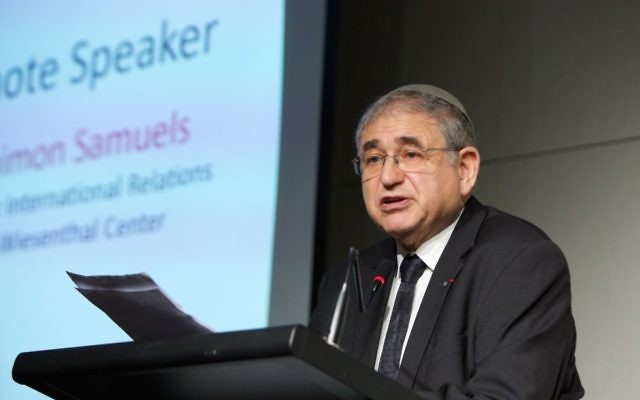Memories, lessons of Kristallnacht
A keynote speech about the resurgence of anti-Semitism in Europe was delivered at a moving 2016 Kristallnacht commemoration in Sydney.
TRAGIC family recollections of the Night of the Broken Glass were shared, memorial candles were lit and a keynote speech about the resurgence of anti-Semitism in Europe was delivered at a moving 2016 Kristallnacht commemoration at the Sydney Jewish Museum on November 9.
NSW Jewish Board of Deputies president Jeremy Spinak told the audience of more than 300 that Kristallnacht “was the night when the indignities of racial purity laws and the vigilantism of the Nazi years could no longer be viewed as a passing nightmare”.
“It was Kristallnacht, with my grandfather’s shop vandalised and him going into hiding, that made [my grandparents] truly understand what they faced, and they made plans to leave Germany,” Spinak said.
“Broken glass does not signal the beginning of a persecution but rather is the result of a build-up of years of hate speech, racist laws and violent action.
“It’s why we are so strongly pushing for changes to NSW government laws to make violent hate speech a crime.”
Joanna Kalowski shared how her mother, Rose Charlotte Ball, watched the heart and soul of Hanover’s Jewish community – its synagogue – burn to the ground on Kristallnacht.
Dr Shimon Samuels, director of international relations at the European Office of the Simon Wiesenthal Centre, stressed how Kristallnacht “happened 18 years after Mein Kampf was on bookshelves, five years after the Nazis came to power and two years after Berlin hosted the Olympic Games”.
“Yet the world was silent, leaders were silent, the media was silent, as Jews were reaching a situation in Europe that was untenable.”
Referring to acts of genocide and human rights abuses that have occurred since World War II, Samuels told The AJN he sees Kristallnacht and the Holocaust “as never being not Jewish, but always being more than Jewish”.
“We need to understand the signposts on the path of genocide, to act as an early warning symbol,” Samuels said.
“We have a responsibility as Jews to sensitise the road to impending danger.”
While a return to anti-Semitic discourse was considered distasteful for a generation after World War II, Samuels identified a concerning change within sections of the media since the early 1980s.
“Examples include when words like ‘Jews’, ‘Israel’ and ‘Zionism’ are no longer used as neutral terms, the adoption of Holocaust language to coverage of Middle East conflicts, and reports that give the impression that terror against Jews or Israelis was normal,” Samuels said.
“This complicity of the media has a numbing effect.”
SHANE DESIATNIK


comments